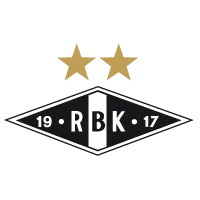
Rosenborg's history
On May 19, 1917, the sports club Odd was founded by a boy in the district of Rosenborg in Trondheim. The name was taken from Norway's leading football team at the time, Odd from Skien. But when the club wanted to join the Norwegian Football Association a few years later, it would not associate two clubs with the same name. On October 26, 1927, the club received its current name: Rosenborg Ball Club.
In the first forty years, RBK was a typical district club that operated with both soccer, handball and ice hockey. The A team in football was useful, but there were competitors like Freidig, Kvik and Brage who dominated in Trondheim.
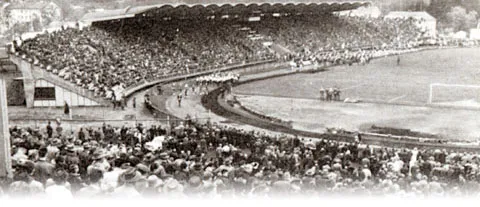
1931 when the club qualified for Class A in the series. After searching for many years in a row, RBK got the first time in NM in 1932, a tournament that would later bring a lot of joy. The first little cup adventure came back five years later, when the team played for the fourth round, where it scored 0-5 for the big team Fredrikstad.
In the same autumn, the new Norway serge started. RBK had qualified through the wager in the series, and in particular the 1938/39 season was successful: Rosenborg won the division and played for the semi-finals, making it 0 - 1 for Skeid after a goal after 89 minutes.
0-3 tap for the Odd Odd in 3rd round in NM a few weeks later became the last major settlement before the war broke out. During the war years there was sports strike in Norway, but eager Rosenborg boys did not let the football go dead and traveled around Trøndelag under the fake club name "Falkenkameratene" and played against local teams.
The highlight of that year nevertheless came first in October: The RBK youngsters shocked everyone to play themselves right up to the cup final, where Odd was shot after the match. For the first time, a team north of Dovre had become the champion of football! Trondheim exploded in gulsus, and 20,000 met on the Torvet to commemorate the heroes when they came home from Oslo.
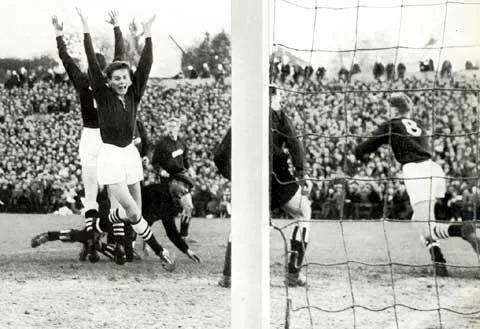
The debut season in the main series was thus only completed in the spring of 1961, and RBK ended up in a nice third place in his department. At this time, NFF decided to introduce a new 1st division that would follow the calendar year. That is why the two major sections were merged into the so-called "marathon series" 1961/62 season: 16 teams were to fight eight of the seats in the new 1st division. Rosenborg ended up at a very angry 9th place, and had to step down. Also in the cup the team went on a click: In the semifinal, RBK was sky-high favorites against Vard Haugesund, but a record audience of 24,591 at the renovated Lerkendal stadium experienced that the rogue matches won 3-2 after extra rounds.
In the autumn of 1964, the smile was happily in place: Rosenborg secured his second Norway championship. Major teams like Sandefjord, Skeid and Vålerengen were eliminated along the way, and in the finals it was 2-1 victory against Sarpsborg.
The first golden age
ODD IVERSEN: The biggest RBK player in history.
RBK still played in the 2nd division, but in 1967 it was finally time for comeback at the highest level. The club management prepared well before the start of the series, and among other things, the national team player Harald Sunde, Trondheim's best football player, was taken from the neighboring club Nidelv. He brought Rosenborg's young promising Odd Iversen to the top, and it became a success immediately.
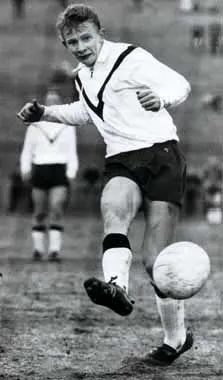
Listed by the newly-assembled radar pair, the top rated was a triumph of RBK. The grandfather Ivers dunk into 17 goals in 18 series matches, and together with Sunde, he was able to win most of Rosenborg's first series championships. This was the first time a new team took gold in Norway. RBK also had the chance to be cupmester, but Lyn put a stop for a rainy final at Ullevaal. The following year there was "only" silver in the series, despite the fact that Ivers scored fantastic 30 goals in 18 matches.
In 1969 the English coach George Curtis was picked up. He focussed on organization and tactics and introduced a 4-4-2 formation with the central defense and pressure on the ball. RBK became the first Norwegian team with a proper gaming system. The English style became a sukess, and another series championship was ensured.
The following season, however, became more difficult. Just before the start of the series, the two big stars, Ivers and Sunde, were both sold to the Belgian 2nd division club, Racing Mechelen. What should you do now? In spite of that, it was only defensive back again. RBK nevertheless managed to collect enough points to get silver, but the joke had become serious: Curtis' men ended up with incredible 15-5 in goal difference of 18 matches!
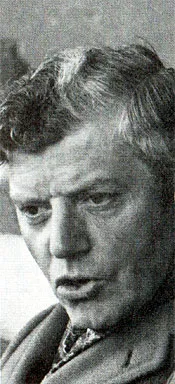
Rosenborg's management was dissatisfied with this little public-friendly football, and the following year two of the serialists from '69, right back Nils Arne Eggen and keeper Tor Røste Fossen took over as coaches. The attacking football was again put into focus. With Bjørn Wirkola, perhaps Norway's best ski jumper throughout the ages, as a centerpiece, Rosenborg won this season both series and cup. It was mildly said a nice debut season for coach Eggen.
Even though RBK was the losing cupfinalist in both '72 and '73, this unfortunately marked the end of the first golden age of RBK. The sporting success failed and after constant coach changes, the club moved down to the 2nd division in the fall of 1977.
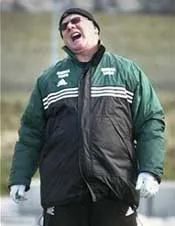
In 1988 modern Rosenborg was born. The club was professionalized at the same time as the new main sponsor, Fokus Bank, injected fresh capital. Nils Arne Eggen, who in the meantime had taken a series of fun with Moss, was back on the bench, and once and for all it was established that RBK should follow the Eggs philosophy of offensive, polite, attractive and public-friendly football. Listed by audience favorites such as Sverre Brandhaug, Gøran Sørloth and Mini Jakobsen, the immediate success of the double-championship in both '88 and '90.
The continuation has already become a football story: Rosenborg dominated Norwegian football a total of 13 series championships in a row between 1992 and 2004. In the fall of 1995, the team qualified for the first time in the Champions League and seven consecutive seasons (record!) In the very best European football club Gave both great moments out on the track - with the "Miracle of Milan" as the highlight and bottom solid economy.
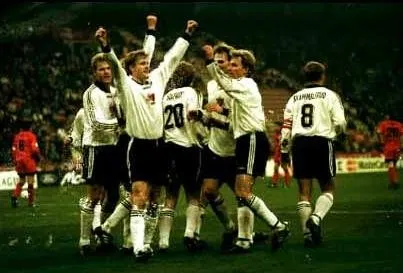
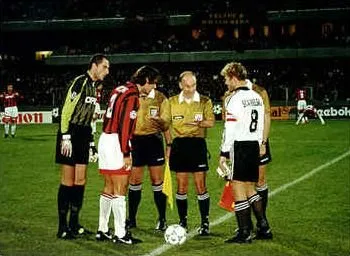
Games in the Champions League meant, however, that major European clubs got their eyes on the many good players in RBK. The last half of the 1990s disappeared from several of the largest profiles abroad, but Eggen often trains to find replacements that were good enough to recreate the success.
Nils Arne Eggen chose to retire in 2002 and was hailed as the club's big man after the resignation match against French Lyon. With the Eg disappeared the continuity of the coach side. Knut Tørum was the sixth man at the helm in six years when he led the team to the 20th series championship in 2006.
Erik Hamrén recalled the winning winner again and laid the foundation for two new gold. The achievements gave him a job as the Swedish "federation", and the coach rotation was over again. It remains to see who is able to create a stable top team of Rosenborg.
ROSENBORG LEGENDER
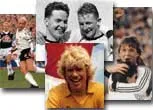
Here you can read about some of the players who have helped develop Rosenborg Ball Club to one of Europe's very best clubs. In order to earn the title "legends" the player must have retired.
Odd Iversen
1964-1970, 1973-1975 and 1980-1982
This man really does not need to be introduced. Ivers was in small age the best time scorer in Norway, and is the biggest profile Rosenborg has ever had.
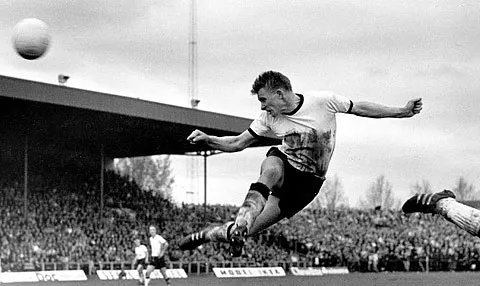
Nils Arne Eggen
1960-1963 and 1966-1969
The oak is the natural leader and was also a captain during periods of his RBK career. But it should be said that it is not primarily the rightback that we will remember him ...
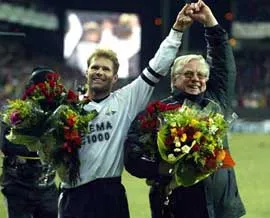
Kåre Rønnes
1956-1974
Kåre Rønnes has really earned the honorary honorary award in Rosenborg Ball Club. During his time as RBK captain, the club evolved from being one of many Trondheim clubs to becoming Norway's best team.
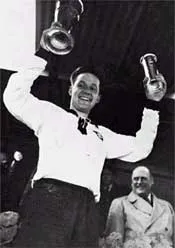
Sverre Brandhaug
1981-1991
For a decade, Sverre Brandhaug was the most important piece of the RBK machinery, and will always be known as the Border Distributor.
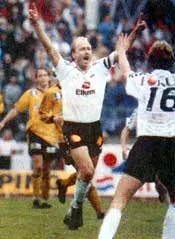
Gøran Sørloth
1985-1993
Gøran Sørloth has been called "The World's Best Meeting Tips". At least he was Rosenborg's best ...
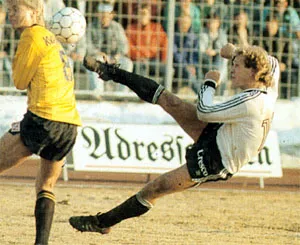
Bent Skammelsrud
1991-1997 and 1998-2002
He should fill the shoes of Sverre Brandhaug. Eleven straight serial championship later there was no doubt that Skammels had finished the mission.
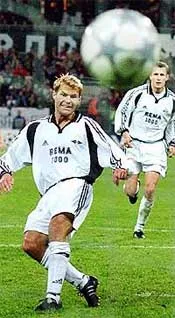
I could pick many more....
About the stadium
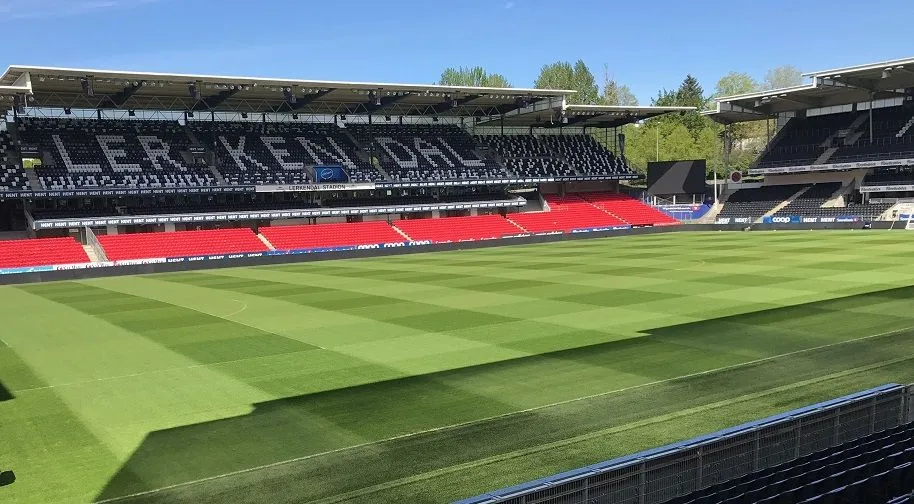

Today Rosenborg is Norways best team. But they are not that big ahead, that hey was some years ago.
Hope had fun reading.
Thank you.